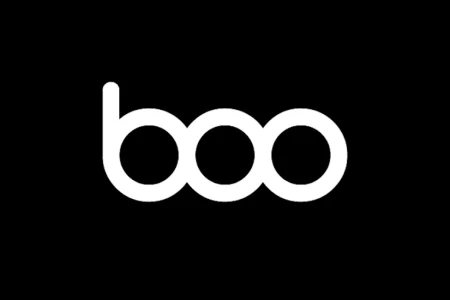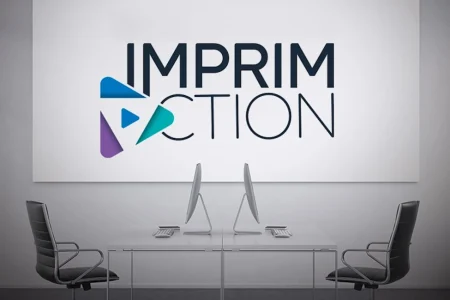The Entrepreneur’s Secret Weapon – Focus
As an entrepreneur, the ability to maintain sharp focus throughout your day can often be the deciding factor between success and failure. In a world filled with distractions—from endless emails and social media alerts to last-minute meetings—it’s no wonder that staying focused has become a superpower in today’s business world.
Think about it: How often have you started your day with a clear plan only to find yourself, hours later, scrolling through social media, completely sidetracked from your original goal? Or perhaps you’ve powered through tasks with the help of multiple cups of coffee, energy drinks, or caffeine tablets, hoping for just one more productive hour. While these quick fixes seem like lifesavers in the moment, they come with significant trade-offs—ones that many entrepreneurs overlook.
In this article, we’ll explore why focus is critical for business success, how common energy-boosting methods like coffee and energy drinks can actually hurt your productivity, and what sustainable alternatives exist. We’ll also dive deep into practical strategies to keep your mind sharp, distractions at bay, and productivity at its peak.
By the end of this guide, you’ll have actionable tips to help you sustain focus without depending on short-term fixes that may hurt your long-term goals.
Why Focus is Critical for Entrepreneurs
Staying focused is more than just a business buzzword—it’s a fundamental skill that separates high-performing entrepreneurs from those who are constantly playing catch-up. At its core, focus is the ability to center your attention on one task without letting external distractions take you off course. But why is this so important, especially for business owners?
When you’re trying to build a company, every decision, every task, every meeting matters. Without focus, tasks pile up, deadlines are missed, and your vision for your business becomes muddled. Cognitive science backs this up. Studies show that our brains aren’t designed to multitask. When you switch between tasks, the brain has to adjust, which reduces productivity significantly.
A study published in the Journal of Experimental Psychology: Human Perception and Performance found that task-switching can lead to a productivity loss of up to 40% due to the cognitive load required to shift between activities (Rubinstein, Meyer, & Evans, 2001). This mental switching costs time, focus, and energy—a deadly trio for any entrepreneur trying to keep their business moving forward.
For entrepreneurs, focus isn’t just about completing to-do lists. It’s about maintaining a clear vision of where your business is headed. When your attention is scattered, you risk missing crucial opportunities for growth or making poor decisions based on incomplete information.
Example: Consider an entrepreneur working on a pitch for a new investor. The phone buzzes with a new email—what’s the harm in checking? They open it, and soon they’re sucked into a side conversation that takes 20 minutes to resolve. By the time they return to the pitch, they’ve lost their train of thought. What should have been a clear, focused session to perfect their pitch has turned into a scattered, unproductive hour.
The solution? Stay focused on your most important tasks and minimize distractions at all costs.
The Hidden Limits of Caffeine and Energy Boosters
Entrepreneurs often turn to coffee, energy drinks, or caffeine pills to push through their busy days. It’s not hard to see why. These energy boosters promise an immediate jolt of alertness, helping you stay productive during crunch time. But here’s the reality: caffeine has limits, and over-reliance can sabotage your focus in the long run.
Coffee: A Double-Edged Sword
Most Canadians start their day with a cup (or two) of coffee. It’s familiar, it’s comforting, and it works—at least for a while. But according to Health Canada, consuming more than 400 mg of caffeine a day (about three to four cups of coffee) can lead to unpleasant side effects like anxiety, restlessness, insomnia, and even heart palpitations (Health Canada, 2021). These symptoms directly counter the focus and productivity you’re trying to maintain.
Caffeine works by blocking adenosine, a neurotransmitter responsible for making you feel tired. However, individuals metabolize caffeine differently. Some people may experience jitters or insomnia with minimal consumption, while others tolerate higher amounts without noticeable side effects. Overconsumption can lead to a dependency cycle, where more caffeine is needed to achieve the same alertness, ultimately leading to diminishing returns.
Energy Drinks: Spikes and Crashes
Energy drinks, with names like Monster and Red Bull, promise sustained energy, but these products often lead to a sugar crash. Most energy drinks contain high levels of sugar (up to 27 grams per can), which might give you a burst of energy initially but leaves you tired and unfocused once it wears off.
Additionally, energy drinks contain concentrated doses of caffeine. Overconsumption can lead to jitteriness, heart issues, and dehydration. The Canadian Medical Association Journal reported that excessive consumption of energy drinks has even led to cases of hospitalization due to cardiovascular issues. While they might seem like a fast fix for an afternoon slump, they’re far from a sustainable focus strategy.
Caffeine Pills and Chewing Gum: A Short-Term Fix
Caffeine pills or caffeinated gum are convenient—pop a pill or chew gum and get a fast dose of caffeine. But these options come with a hidden risk: it’s easy to overconsume. Because the caffeine is concentrated, you can quickly exceed the recommended daily limit without even realizing it.
Exceeding this limit leads to dependency and can worsen productivity in the long run. Instead of naturally sustaining focus, you become reliant on artificial stimulants, leading to diminishing returns. Over time, your body builds up a tolerance, meaning you’ll need more to achieve the same effect.
Example: Imagine an entrepreneur who has a massive deadline looming. They start their morning with two cups of coffee, grab an energy drink at lunch, and by mid-afternoon, pop a caffeine pill to stay awake. By evening, they’re jittery, unable to focus, and have trouble falling asleep. The next day, the cycle continues, but they feel more drained and less focused than before. Instead of increasing productivity, they’ve become trapped in a downward spiral of stimulant dependency.
Sustainable Focus: Proven Strategies for Entrepreneurs
Relying on caffeine isn’t the only way to stay focused. Entrepreneurs who master their focus use strategies that go beyond quick fixes. These practical methods help you maintain concentration naturally while boosting your productivity.
1. Goal Setting and Prioritization
The first step to achieving focus is knowing what you need to focus on. Setting clear, actionable goals can make all the difference. SMART goals—Specific, Measurable, Achievable, Relevant, and Time-bound—provide a framework to ensure that you’re not only focused but also productive.
Prioritization is key. Use tools like the Eisenhower Matrix, which helps entrepreneurs sort tasks by urgency and importance. This method ensures you spend your time on high-value tasks rather than getting bogged down in distractions.
2. Time Management Techniques: Pomodoro and Time Blocking
One of the most effective time management strategies is the Pomodoro Technique. Work in focused intervals, typically 25 minutes, followed by a 5-minute break. After four cycles, take a longer break of 20-30 minutes. This rhythm maximizes productivity without overwhelming your mind (Cirillo, 2006).
Another method is time blocking, where you schedule specific tasks for certain times of the day. By dedicating blocks of time to important work, you avoid distractions and make consistent progress on larger projects.
3. Delegate and Automate Tasks
Entrepreneurs often fall into the trap of trying to do everything themselves. But here’s the reality: you can’t. Learning to delegate tasks to capable team members and automating routine tasks (like email responses or social media posts) can free up your time to focus on the bigger picture.
4. Digital Detox and Scheduled Breaks
The constant ping of notifications, the allure of social media, and the bombardment of emails are all digital distractions. Try digital detox techniques: schedule time to check emails or social media rather than responding the second a notification pops up.
Scheduled breaks are equally important. Research from the Harvard Business Review shows that taking breaks improves concentration and creativity. Stepping away from your desk, even briefly, can help reset your focus and enhance your productivity when you return.
5. Mindfulness and Mental Well-being
Incorporating mindfulness practices like meditation or deep-breathing exercises can significantly improve your ability to concentrate. Mindfulness trains your brain to stay present, reducing the tendency to get lost in distracting thoughts.
6. Physical Health and Nutrition
Your physical health directly impacts your cognitive function. Regular exercise increases blood flow to the brain, enhancing mental clarity. A balanced diet rich in omega-3 fatty acids, antioxidants, and vitamins supports brain health, helping you maintain focus throughout the day.
Focus Is Your Best Competitive Advantage
Focus is often considered the secret weapon of the most successful entrepreneurs. While coffee, energy drinks, and caffeine pills might give you short-term bursts of energy, they’re not sustainable solutions in the long run. Relying on these stimulants can harm your ability to naturally focus, leaving you burnt out and less productive over time. Instead of chasing quick fixes, you need to adopt sustainable, long-term strategies that enhance both your mental clarity and your business success.
Building focus doesn’t happen overnight—it requires intentional effort, smart goal setting, and a disciplined approach to time management. By establishing clear goals, prioritizing tasks, and creating a team environment that values deep work, you’re investing in your business’s future. Digital detoxes, automation, and well-structured routines are your allies, not energy drinks.
Remember that your body has limits. Understanding and respecting those limits by avoiding over-reliance on caffeine will help you perform at your best. Taking breaks, getting proper sleep, and managing your energy naturally will lead to more sustained productivity and, ultimately, more success for your business.
Final Thought: Building a successful business is a marathon, not a sprint. Focus is your most valuable asset in this journey, and knowing how to harness it effectively will give you the competitive edge. So, next time you’re tempted to reach for another coffee to power through a tough day, consider stepping away, recharging naturally, and coming back more focused than ever. Your business—and your health—will thank you.
References:
- Rubinstein, J. S., Meyer, D. E., & Evans, J. E. (2001). Executive control of cognitive processes in task switching. Journal of Experimental Psychology: Human Perception and Performance, 27(4), 763-797.
- Health Canada. (2021). Caffeine in Food. Retrieved from Health Canada website.
- Cirillo, F. (2006). The Pomodoro Technique. Retrieved from Pomodoro Technique official website.







